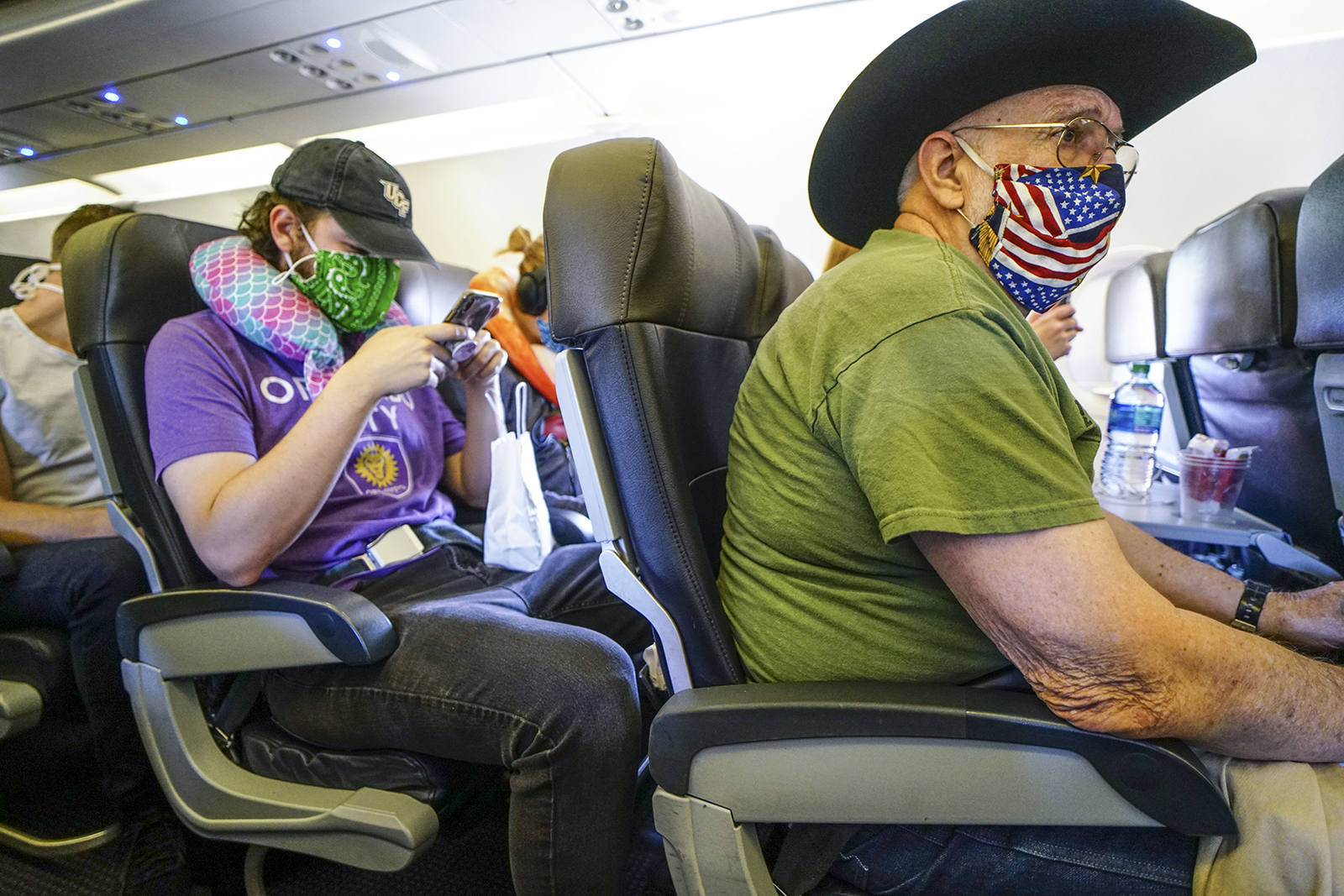Would-be air travelers hold billions of dollars in credits for future flights, and two US senators want airlines to drop restrictions like expiration dates — or to refund the customers in cash.
Sens. Ed Markey and Richard Blumenthal, both Democrats, are sending a letter to 10 US airlines Monday asking the carriers “commit to providing a cash refund for all tickets that are canceled during the coronavirus pandemic.”
“Americans need cash in their pockets to pay for food, housing, and prescriptions during this emergency,” Markey of Massachusetts and Blumenthal of Connecticut wrote in the letter that was shared with CNN.
Congress extended more than $50 billion in taxpayer dollars to the airlines over the past year to fund payroll expenses, and some airlines took government loans for other costs.
But at the same time, customer complaints about refunds were skyrocketing. Refunds quickly became the most griped about part of air travel during the pandemic, according to the Department of Transportation. Passengers filed more than 107,000 official complaints since March 2020, and 95,000 of those — 89% — are about refunds, DOT data show.
There is no precise dollar amount of outstanding and recently expired flight credits, but the figure is in the billions. Consumer Reports estimates the figure is between $12 billion and $15 billion. Markey and Blumenthal cited a $10 billion estimate in their letter.
Airlines say they have paid out large sums in cash refunds while slashing flight schedules and as customers decided against flying. Airlines for America, which represents seven of the 10 carriers contacted by the senators, told CNN its members had refunded $12.84 billion to customers in cash throughout 2020. It said cash refunds by its members totaled 19% of operating revenue last year. That number was just 4% of operating revenue in 2019.
But consumer advocates documented cases of customers owed a refund being pressured into accepting credits instead.
The rules outlining refunds and flight credits are outlined in fine print terms that vary from airline to airline but are also guided by federal regulations. Generally, when an airline cancels or significantly changes a flight, each passenger is entitled to cash, if they want it. When a customer cancels their ticket, they may not be entitled to cash.
The credits, unlike cash, typically come with expiration dates. Several airlines, like American and United, have extended expiration dates for some credits into 2022, but some airlines have not extended the expiration date, and credits issued before the pandemic may not be covered by extension policies.
Bill McGee, the aviation adviser for Consumer Reports Advocacy, told CNN many expiration policies “are extremely complicated — and quite frankly, why should there be any expiration on vouchers in the age of Covid?”
Complaints rose as number of travelers fell
In April 2020, the pandemic had taken hold and travelers were deciding — or were forced by travel restrictions — to stay put. The Transportation Security Administration recorded just 87,000 screenings on one day that month — a sliver of the 2.2 million people it screened the year before. The Transportation Department issued an enforcement notice reiterating the rules around refunds, and said it was “receiving an increasing number of complaints and inquiries.”
That April, travelers would file more than 17,000 complaints about refunds alone. In April 2019, DOT received a total of 1,206 complaints, of which 98 were about refunds.
McGee said airlines are acting unjustly given the circumstances of the pandemic.
“We find it egregious that this industry has received as much or more government support than virtually any other industry in the United States since Covid started — three bailouts totaling billions of dollars — and what has happened is that taxpayers are paying twice in many cases,” he said.
Billions in credit
Airlines for America said its members “updated travel policies to offer increased flexibility for customers and remain committed to working with each customer to address individual circumstances.”
In annual financial statements filed earlier this year, American Airlines said its customers hold $2.6 billion in credit, and United Airlines reported $3.1 billion in outstanding credits, both as of December 31. Southwest Airlines reported the value of flight credits held by its passengers “far exceeds previous periods.”
Delta Air Lines told CNN it had refunded cash to 6.7 million customers — a total worth $3.1 billion in 2020.
Southwest reported providing customers $934 million in cash refunds since March 2020.
In their letter, Markey and Blumenthal asked the airlines — “at a minimum” — to drop any expiration dates from the flight credits. They said the complex expiration and redemption policies, combined with continuing health concerns and travel restrictions, mean travelers “are now at risk of losing the billions of dollars they were effectively forced to loan to the airline industry interest-free.”
“[W]ithout removing expiration dates, your company may be encouraging travelers to fly before they feel safe boarding a plane, lest they lose tickets that they have already purchased with hard-earned dollars,” the letter reads.
Delta told CNN it has extended expiration dates for many credits until the end of 2022.
The airlines are Alaska Airlines, Allegiant Air, American Airlines, Delta Air Lines, Frontier Airlines, Hawaiian Airlines, JetBlue Airways, Southwest Airlines, Spirit Airlines and United Airlines. American and Southwest both referred CNN to Airlines for America for comment.



